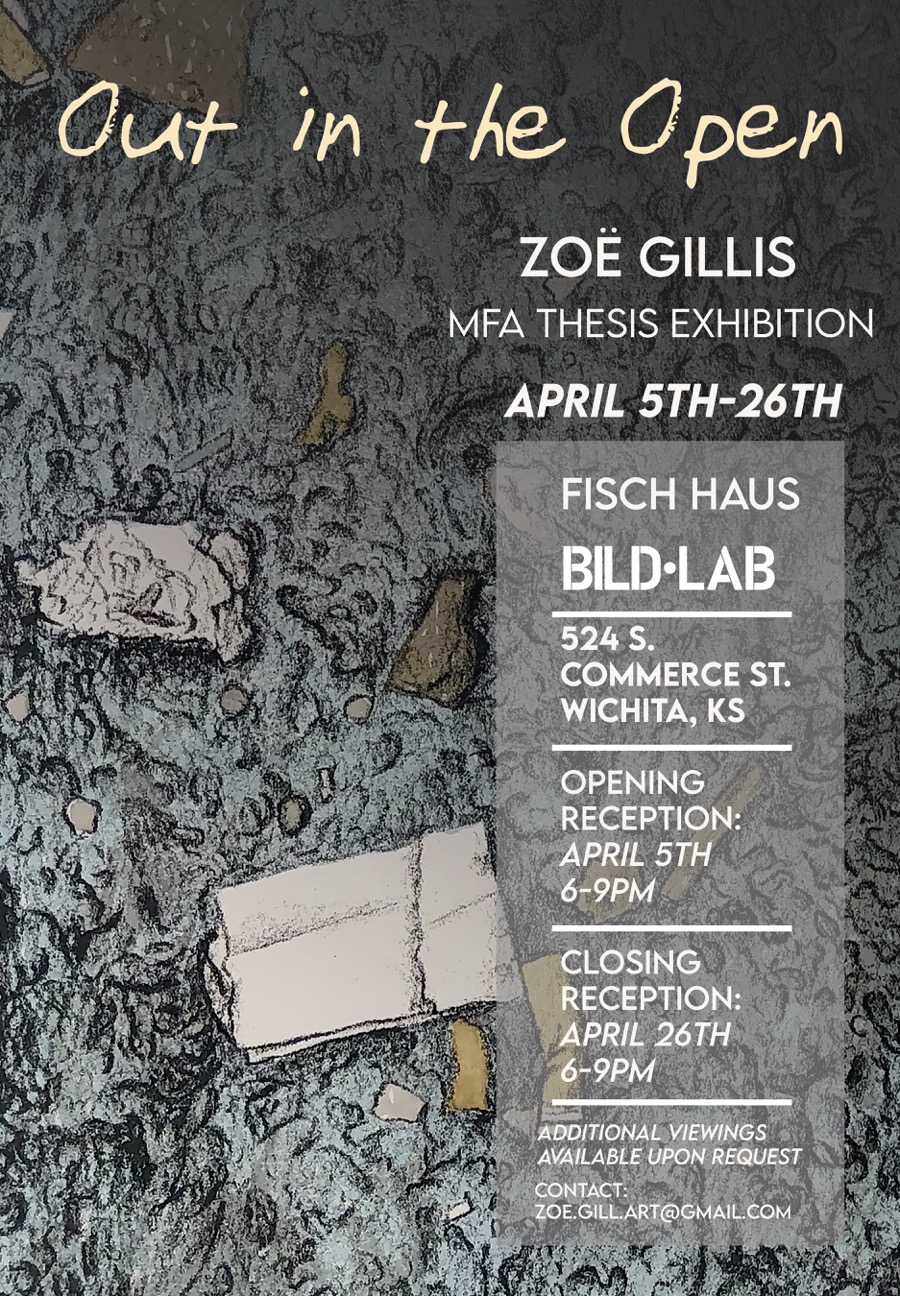April 5 – 26, 2024
WSU MFA candidate Zoe Gillis presents her thesis exhibition.
ARTIST’S STATEMENT
The home I shared with my mother stopped feeling like “home” as soon as she passed away. That part of my life feels distant and intangible, and not mine at all. I grieve the life that feels lost to me, as well as the life that could have been. This body of work focuses on articulating my feelings of loss, melancholy, and displacement. It also seeks to unpack emotions associated with my reassessment as an adult of certain aspects of my childhood and upbringing. It references both the grief I feel from the loss of my parents and from the experience of growing up below the poverty line in a rural town.
I combine the use of hand-drawn imagery with photographs that reference my adolescent life, my parents, and the difficult emotions tied to death and grief. My representational prints are directly taken from images of the now-abandoned home I used to live in with my mother. The addition and subtraction of information from the reference photo to the drawn and hand-printed images embodies the idea that our memories are never true to the events that created them, even if they are very close. I hand print many layers of color, visual texture, and strategic abstraction to create the illusion of age, damage and decay within the imagery. The tedious and physical nature of printmaking serves as a mental palette cleanser that helps me reflect and clear my mind after composing and drawing the imagery, which is often quite emotionally and mentally heavy.
The time spent making the work is also time spent excavating the memories attached to the spaces I depict.
For a long time, I was socialized to believe that I should not acknowledge the fact that I grew up poor, or that my parents were addicts. Family, friends, and society implicitly and explicitly told me to be ashamed of how I grew up, but these experiences shaped me on a fundamental level. This work is highly personal, and I use my adolescent memories to explore issues of grief, loss, class, and memory in a self-reflexive way.


